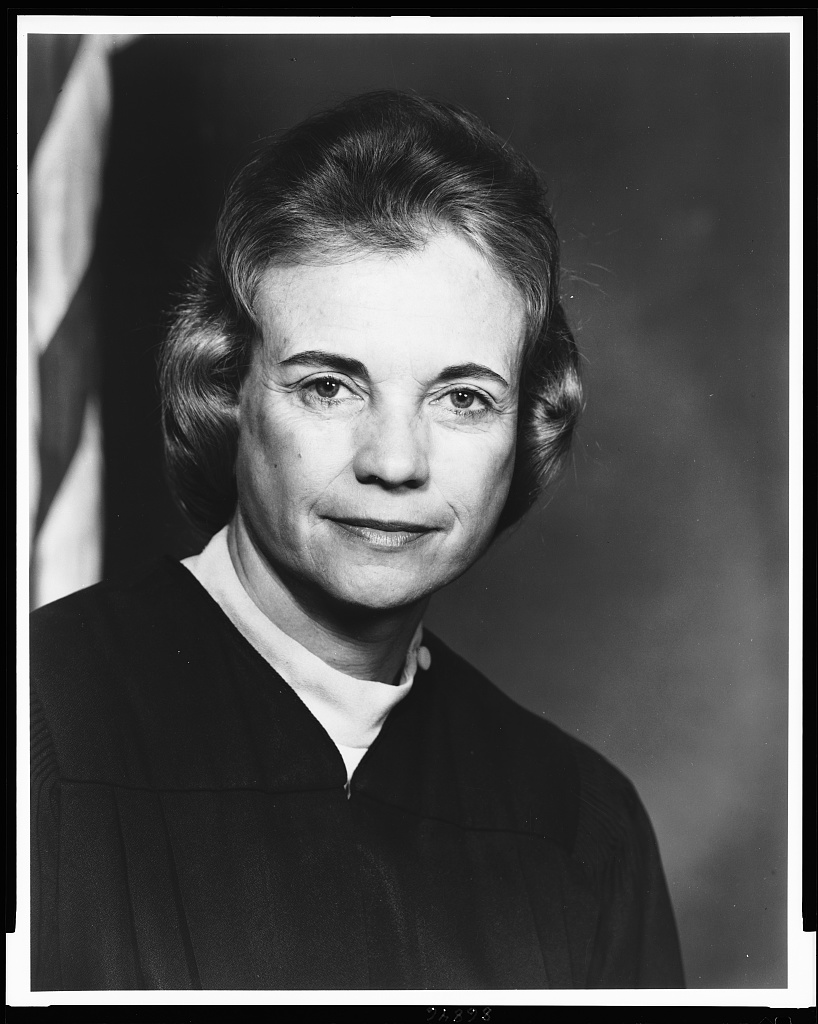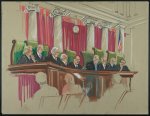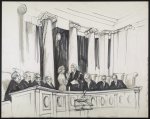Supreme Court Moments in History: Sandra Day O’Connor on Abortion, 28 June 2010, YouTube, youtu.be/fo8dzlGocP0?t=135. Accessed 18 December 2019.
The Supreme Court
When Sandra Day O'Connor came to the Supreme Court in 1981, only a handful of justices were hiring female law clerks. She aimed to change this by giving young lawyers, particularly young female lawyers, the opportunities that were not available to her. The justice saw to it that her clerks were well cared for and had every venue of possibility open to them. O'Connor knew the struggle of balancing work with family life so:
The message was family comes first. But also, you shouldn’t be choosing. You should be able to do both. ~Barbara Woodhouse
“Out of Order at the Court: O’Connor On Being the First Female Justice.” NPR, 5 March 2019 npr.org/2013/03/05/out-of-order-at-the-court-oconnor-on-being-the-first-female-justice. Accessed 9 December 2019.
Justice O’Connor was a swing vote, meaning her vote could decide the outcome of a case. The justice was aware of this fact and used it to leave her mark on each case that came in front of her bench. The justice was cognizant of the fact everything decided then would have an affect on rulings that came later. She made sure her rulings were as clear as possible to avoid misinterpretations.
Sandra Day O’Connor felt strongly about the outcome of many cases that came to the SCOTUS; cases like Casey v. Planned Parenthood, Bush v. Gore, and countless others that had to do with Affirmative Action. The justice knew the results of these cases would resonate for generations to come and each ruling needed to consider the impact on those very generations.


